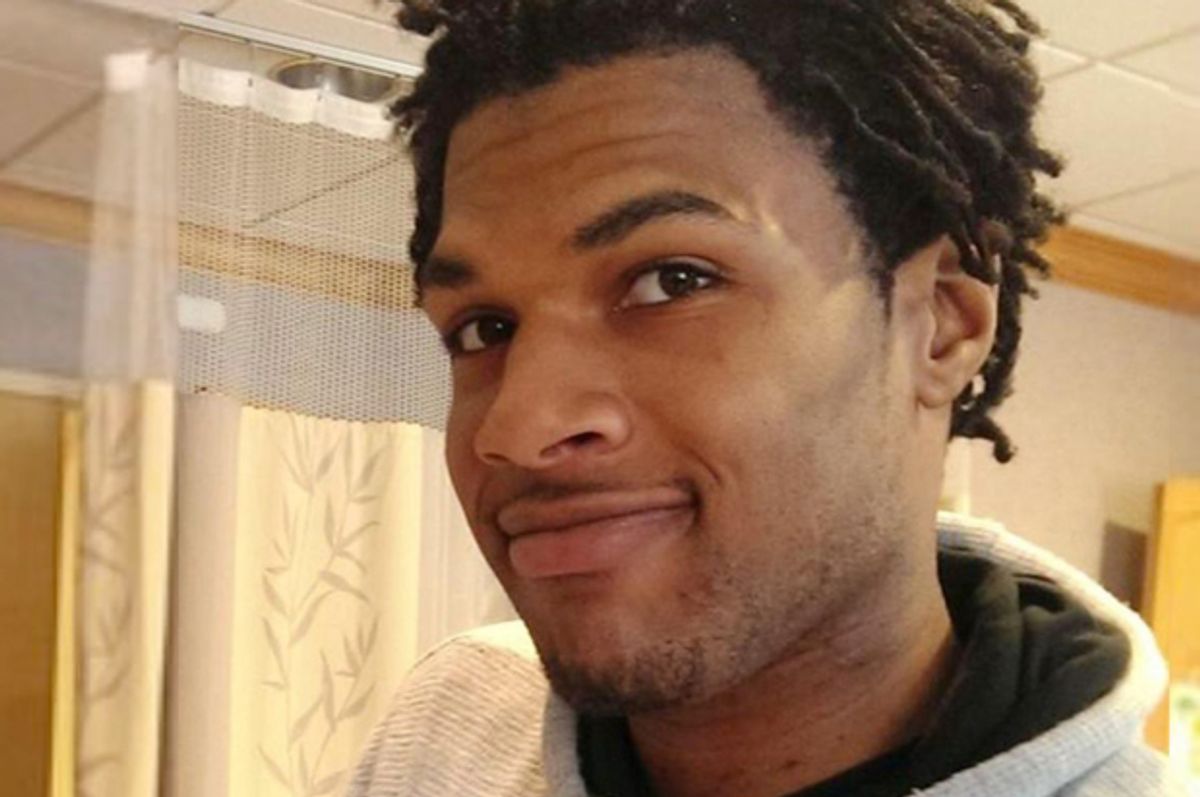A group of young people affiliated with the Ohio Students Association and the economic and racial justice network Freedom Side are now occupying the police station in Beavercreek, Ohio, demanding that police chief Dennis Evers meet with them in the wake of the killing of John Crawford III by Beavercreek police officer Sean Williams. A grand jury failed to indict Williams for the shooting on September 24, and the students, who have been organizing around Crawford's death since August, have moved to escalate.
After the news came down that Williams would not be indicted, organizer Malaya Davis tells Salon, the group sat down to consider next steps and came up with three demands. They want Williams removed from the force, they want to overhaul the police training materials that they blame for Williams and Sgt. David Darkow's aggressive response to Crawford, and, Davis says, “we want to really start a conversation around how we fundamentally shift the power dynamics and relationship between law enforcement and community. Law enforcement ranging from police officers to sheriff to county prosecutor.”
“An occupation is the way that we're going to try to force these demands to at least be heard and be taken into consideration,” Davis continues.
The organizers held a rally on Friday and spent the weekend meeting in the community, and returned at 8 AM this morning. About ten of them plan on remaining at the station until the chief meets with them—they are demanding a meeting by Wednesday.
Organizer Darsheel Kaur, who grew up in Beavercreek, says that the group has worked hard to make sure their actions make sense in the moment and have a direct purpose. She does note, though, that sometimes it takes outside attention and pressure to make officials act. “As a community organizer it's hard for me, I want to do something with community support but at the same time I think we have to broaden the sense of community in this point,” she says.
At the same time, she is impressed with the amount of support they have gotten. “We've been calling ourselves the Concerned Citizens because there's people from all around, different ages, cultures, backgrounds, races. A lot of people have been supporting us. I think people are ready to start working together in a new way. I think it's a very hopeful situation in terms of community transformation.”
Adds Davis, “People were looking to our leadership to really make sure that justice is being served--and what the community deems is justice, not what the justice system has deemed as justice.”



Shares